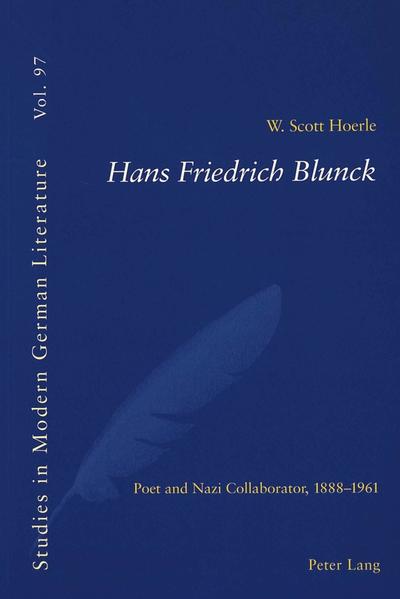Medium:
Verlag:
Oort:
Oxford (Oxford [u.a.])
(Oxford [u.a.])
Johr:
2003 rutkamen an’n 15. Oktober 2003 (Mittweken)
Ümfang:
271 Sieden
Originalpries:
62,80 €
ISBN:
3-03910-023-8
ISBN-13:
978-3-03910-023-1
Amazon:
Bookformat:
Softcover, H 22 cm / B 15 cm
Spraak:
Kategorien/Regionen:
Thema:
Text von’n Verlag:
Which literary traditions helped carry the Nazis to power? In which parts of Germany were these traditions strongest? This study answers these questions by examining the life and career of one of the Third Reich’s most influential literati, the northern German poet Hans Friedrich Blunck (1888-1961). Infamous as a classic Blut und Boden («blood and earth») writer, Blunck worked in neo-Romantic, traditional folk styles and was best known for his fairy tales and semi-historical works about his native Schleswig-Holstein. From 1933 to 1935, he was president of the Third Reich’s Reichsschrifttumskammer («Reich Literary Chamber», RSK), a professional union that included all of Nazi Germany’s «acceptable» (and legally publishable) writers. From 1936 to 1940, he was president of Die Stiftung des deutschen Auslandswerks («Foundation for German Foreign Work», DAW), a cultural embassy of his own invention that sought to build informal diplomatic links between Germany and its neighbors. While numerous writers distanced themselves from the Nazi regime before the war, Blunck maintained his ties until the end. His activities represent a consequential, and, arguably, the most revealing, story of literary complicity in the Third Reich. Moreover, his life says a great deal about the cultural forces – particularly the regional literary forces – that helped propel the Nazis to power.

